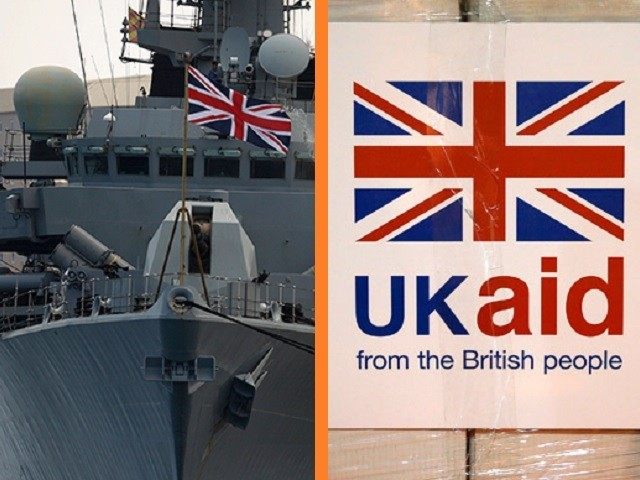Plans for the Royal Navy to take part in rescue operations in the Mediterranean have been put on hold after confusion over asylum rights and international law.
HMS Bulwark was due to join other EU vessels taking part in search and rescue missions to try stop the tragic loss of life as people traffickers take advantage of migrants desperate to flee Africa and the Middle East, the Express reports.
Under maritime law, it is the responsibility of the ship’s master to provide assistance to any person in distress at sea so long as doing so would not put the vessel and those already on board at risk.
Ministers have apparently stopped the Navy from participating because Italy refused to guarantee that it would take all of those rescued. The rules governing international law at sea, UNCLOS, states that coastal states have an obligation to operate and maintain adequate and effective search and rescue services and to co-operate with neighbouring states for this purpose. Included in the definition of ‘rescue’ is not only the retrieval of the person and providing medical treatment but their delivery to a place of safety.
The Home Office says that their duty would be fulfilled should the Royal Navy take those it rescues to the closest safe port. But with Italy refusing to confirm it will accept everyone who is rescued, there could be grounds for asylum seekers to use the fact that vessels fly the flag of certain States and claim asylum there.
So called ‘flag States’ which apply to vessels owned or operated by a government and used in a non-commercial capacity are considered a “floating extension” of the State in question, which if Italy quibbles about offering sanctuary means there could be a legal case for asylum seekers to claim that the UK was the first safe country they landed in.
According to the UN: ‘Where such vessels engage in rescue operations within territorial waters, the responsibility for those rescued would devolve on that State. This may arguably be the case even where such scenarios occur on the high seas.’
Plans are also afoot in the European Union for the Common Asylum Policy to dictate just how many of those making the journey to Europe will be allocated to each member state.
The UN has estimated that 1,800 people have died trying to make the crossing, including 900 who drowned two weeks ago when an overloaded, rickety boat capsized on its way to Italy. The huge numbers resulted in an international call for action to be taken to stop the loss of life.
This afternoon, charity Save the Children have announced that “dozens” have died when an inflatable boat exploded or deflated with 137 on board while making its way to the southern Italian islands.
Giovanna di Benedetto, Save the Children’s representative in Catania, said the latest incident is thought to have happened on Sunday.
“They [survivors] said there were 137 people aboard an inflatable boat that deflated or exploded – it wasn’t clear – and that some of them fell overboard,” Ms di Benedetto said.
Explain the delay, a Home Office spokesperson said: “The Prime Minister was clear at last week’s European Council that Britain would be playing it’s role in tackling the current crisis in the Mediterranean but that our focus would be on saving lives, not offering people asylum in the UK.
“Discussions between EU partners remain ongoing to ensure close coordination and we are not going to speculate on any operational decisions at this stage”
A Navy spokesman said: “We’re working through with the Italians about how [Bulwark] may be used, and once we’ve got that agreement we’re there to work on search-and rescue efforts.”

COMMENTS
Please let us know if you're having issues with commenting.